Trump budget: Meals on Wheels cutback prompts backlash
- Published
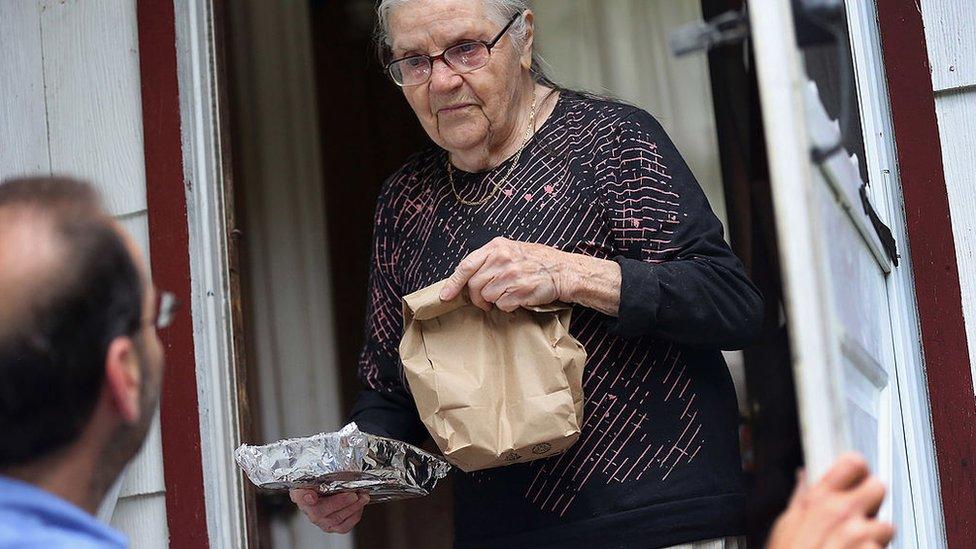
Meals on Wheels provided food to 2.5 million Americans last year
Donald Trump has published some budget proposals for the next fiscal year and, as expected, it's good news for defence and border security, bad news for the environment, arts, and certain welfare programmes.
One planned cutback has generated a particularly strong backlash: President Trump's intention to eliminate the entire Community Development Block Grant, which funds housing assistance and various community programmes.
Among them is Meals on Wheels, which provides food to the elderly and disabled, to veterans, and to others who are unable for some reason to leave their homes.
The planned cutback wouldn't eliminate Meals on Wheels, but it would limit a service which is already struggling to cope with increasing demand, according to the organisation behind it.

Last year, Meals on Wheels delivered food to 2.5 million Americans, including 500,000 veterans, according to its own figures, external. It also offers ancillary benefits, it says, such as reducing loneliness and preventing falls - which it says saves the taxpayer $34 billion per year in hospital bills.
And that is backed up by a 2015 study by Brown University, external, which found that elderly citizens who received home-delivered meals experienced fewer falls and needed fewer trips to hospitals.
"Meals on Wheels sounds great," said Mick Mulvaney, Mr Trump's White House budget director, but, he added, the programme is "just not showing any results".
Majority of the programme's funding comes from donations from individuals, corporations and foundations, but about 3% of the budget for Meals on Wheels' national association is through government grants.
The national chapter supports a network of 5,000 independently operated local agencies, which provides the actual food and services to senior citizens, according to Jenny Bertolette, a spokeswoman for Meals on Wheels,
Those local agencies primarily rely on federal funding through the Older Americans Act under the US Department of Health and Human Services (HHS), which could see a nearly 18% cut in the proposed budget.
The Older Americans Act covers about 35% of the cost of serving 2.5 million Americans through local chapters, Ms Bertolette said.
Should the health department see its funding decrease, those cuts would likely trickle down to programmes like those funding Meals on Wheels' local affiliates, she added.
These local agencies also depend on the Community Development Block Grant in which Mr Trump seeks to eliminate.
Though it is unclear how much the local chapters will be affected under the proposed budget cuts, Ms Bertolette said "we are certain that our programmes would suffer on some level", which means that means seniors would not receive the care they need.
For example, a local programme outside of Detroit could lose as much as 30% of its budget if the Community Development Block Grant ends.
That could mean turning seniors away or cutting services like two meals a day down to one, Ms Bertolette said.

More on the Trump administration:

Asked whether the planned cuts were "hard-hearted", Mr Mulvaney argued that it was just as compassionate not to ask American taxpayers to pay for welfare programmes that don't work.
"You're focusing on recipients of the money. We're focusing on recipients of the money and people who give us the money in the first place. I think it's fairly compassionate to go to them and say, look, we're not going to ask you for your hard-earned money anymore."
The planned funding cut, and Mr Mulvaney's remarks, prompted heavy criticism on Twitter.
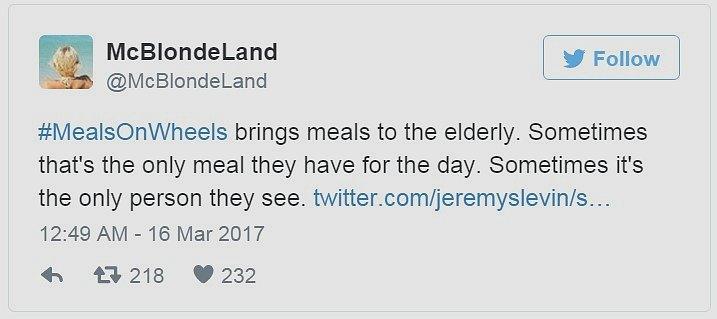
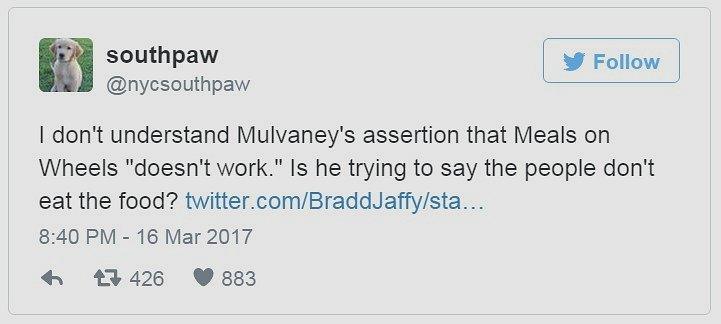
Some drew comparisons with the costs incurred by Mr Trump's security demands, particularly his regular weekend trips to his Florida commercial club, Mar-a-Lago - one of which was estimated to cost more than $3 million, external.
Others pointed out that the cuts to a number of welfare programmes were being made to balance out a significant increase in defence spending, or to the estimated cost of Melania Trump's decision to stay in New York so son Barron did not have to change school - reported to be somewhere in the region of $300,000 per day.
Meals on Wheels providers told Market Watch that it costs about $2,500 per year, external to feed a single senior citizen.
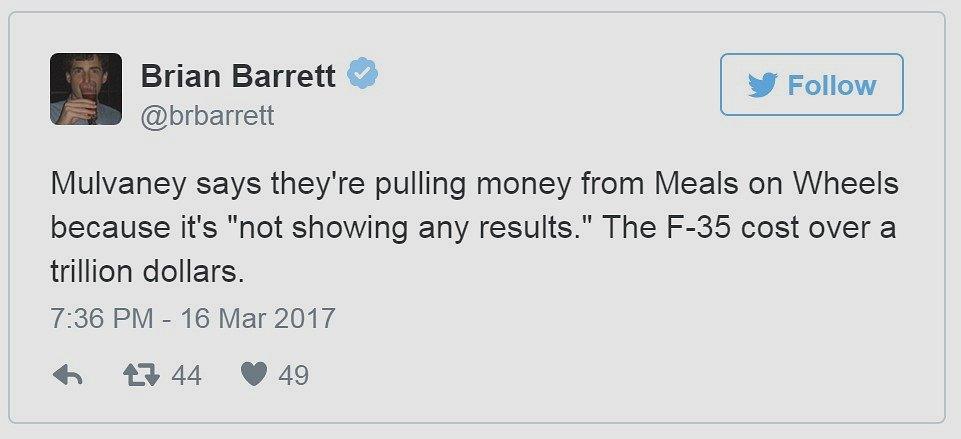
A 2013 report, external on the effectiveness of Meals on Wheels found that the home-delivered meals "significantly improve diet quality, increase nutrient intakes, and reduce food insecurity and nutritional risk among participants".
Other benefits included "increased socialisation opportunities, improvement in dietary adherence, and higher quality of life". The social aspect was highlighted by Elijah Cummings, representative for Maryland's 7th District, who also invited Mr Mulvaney to his district to see first hand the impact of the programme.
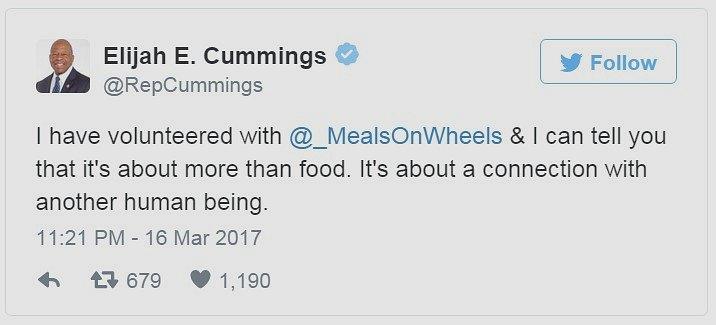
The draft budget proposals say the Community Development Block Grant, which encompasses Meals on Wheels, is "not well-targeted to the poorest populations and has not demonstrated results".
Others have pointed to the fact that the majority of funding for the programme comes through state-allocated funds and not federal grants, and would not be affected by this cutback.